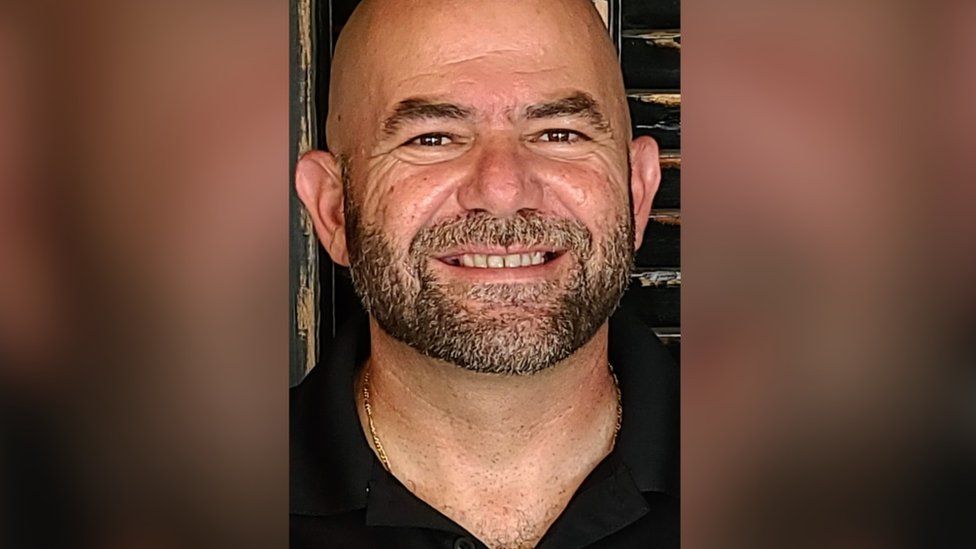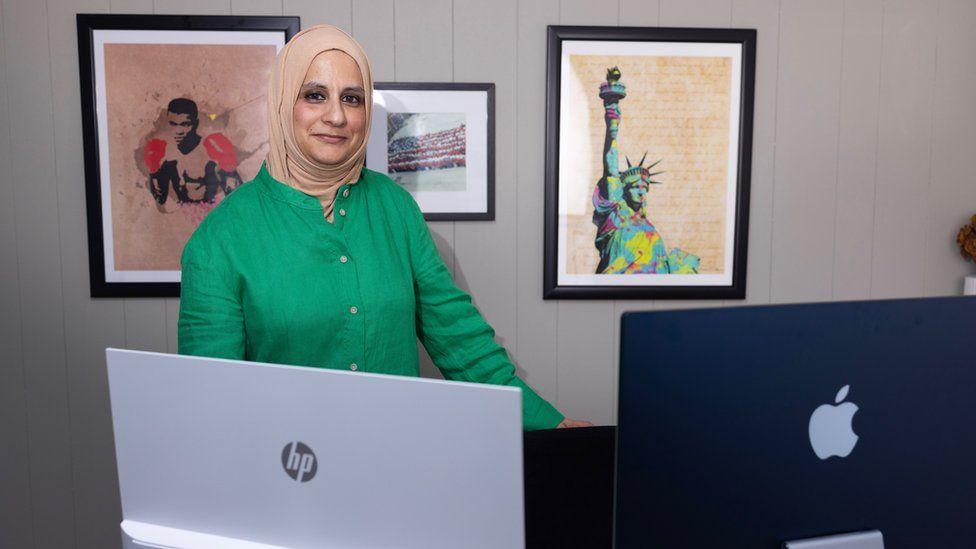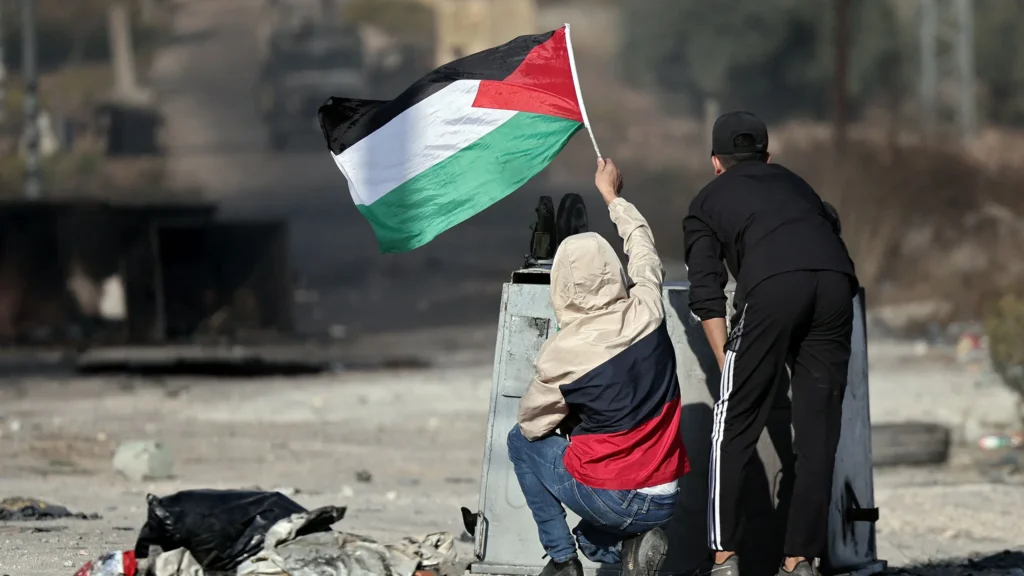After the shooting of three college students in New England and a string of other incidents, Palestinian Americans say they are worried about their safety.
When Samer Elbandak heard that three young Palestinian men were shot over American Thanksgiving weekend in Burlington, Vermont, he immediately feared for his 16-year-old daughter.
His daughter, who lives in Florida, is vocal about the plight of Palestinians in the West Bank and Gaza. On her Instagram page, the Palestinian flag is prominently displayed.
Embracing her identity is something that Mr Elbandak, a Palestinian-American Christian who was born and raised in Bethlehem and who immigrated to San Francisco 30 years ago, had always encouraged.
But a week after the shooting of Hisham Awartani, Kinnan Abdalhamid and Tahseen Ali Ahmad – three 20-year-old Palestinian-American students – Mr Elbandak said he decided to fly to Florida to have a difficult conversation with his daughter.
“I explained to her that she needs to be very careful,” he said. “There are some people that are blind, that are full of hatred.”
Palestinian parents in the US like Mr Elbandak say they are increasingly having their version of “the talk” – a conversation about encountering racism that has long been held in African-American and other minority households – after a recent string of incidents where people who are visibly Palestinian have been attacked.
Police in Burlington said they are still investigating whether the 24 November shooting of the three men was a hate crime. The suspect, Jason Eaton, pleaded not guilty to attempted murder charges.
The victims of the attack maintain they were targeted because of their ethnicity.
They were speaking a mix of Arabic and English at the time of the attack, and two of them were wearing keffiyehs – a traditional, Palestinian black-and-white scarf that often serves as a symbol of Palestinian identity and solidarity.
Some say the incident has left them fearful that being visibly Palestinian in the US has become a risk since the Israel-Gaza war erupted on 7 October.

Among those who felt this concern is Anne Bordonaro, a mother of two Palestinian college-aged men born and raised in Burlington.
“I looked at the picture of the three young men and I just felt a gut punch,” Ms Bordonaro said. “I said, those are my kids.”
She then called her two boys and had a “painful conversation”, in which she suggested they avoid wearing their keffiyehs in public.
“My younger son often wears one, it’s just a symbol of identity, it is just part of who he is,” Ms Bordonaro said, but she added she worried it made him a target.
At the time of the Burlington shootings, the Palestinian community in the US – a small diaspora of around 220,000 – was already reeling from the murder on 14 October of a six-year-old Illinois boy, Wadea Al-Fayoume.
Prosecutors have accused the suspect in Wadea’s death of deliberately targeting the child and his mother for being Palestinian.
The Council on American-Islamic Relations (Cair) said it had received an “unprecedented” amount of reports of anti-Arab and anti-Muslim bias since 7 October, recording a total of 2,171 requests for help across the US as of December.
The wife of a Harvard professor was caught on video harassing a student for wearing a keffiyeh, calling it a “terrorist scarf”.
On 7 November, a man wearing a keffiyeh was allegedly assaulted while he was at a playground with his son in Brooklyn, New York.
In another incident 10 days later, it is alleged that a Yemeni-American Muslim woman was targeted on the New York subway by a man who called her a “terrorist”, hit her and broke a Palestinian flag she was carrying.
Ayah Zaki, a civil rights attorney for Cair in New Jersey, said that Palestinian mothers have recently been coming to her for advice on how to speak with their children about the issue.
“There’s a fear-saturated conversation happening in households between the children who want to speak up about their identity, and moms who are absolutely terrified of them being in harm’s way,” Ms Zaki said.

Ms Zaki said much of the racism Palestinians are facing is rooted in prejudices against Arabs and Muslims in the US that peaked after the attacks of 11 September 2001. She added the divisive political discourse in the US around the Israel-Gaza war is part of the problem.
Abeer Ramadan-Shinnawi, an education consultant and mother based in Maryland, said that as a Palestinian born and raised in the US, she has often felt “othered” in American society – something that she said is also experienced by other minorities in the country.
“There is no sense of acceptance,” Ms Ramadan-Shinnawi said.
But amid the fear and frustration is also resilience. A few days after the Burlington shootings, two vigils were held back-to-back in the city to honour the three young Palestinian men who were shot. One was held across from the hospital in which they were recovering, where a few people arrived wearing keffiyehs.
And some like Ms Bornadaro have since been reflecting on the agonising conversations they have had with their children.
“I have decided to get myself a keffiyeh again,” she told the BBC, a few weeks after the Burlington shooting had passed.
“I used to wear one many years ago,” she said, adding that she feels compelled to wear it again in solidarity.
Source: BBC


